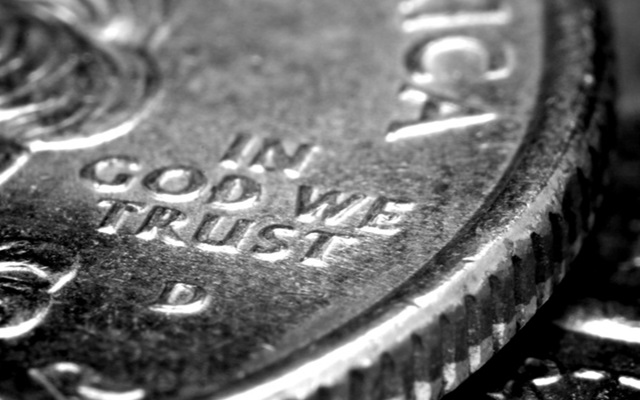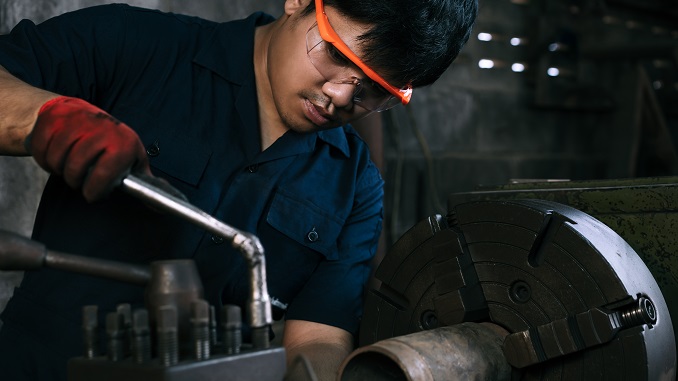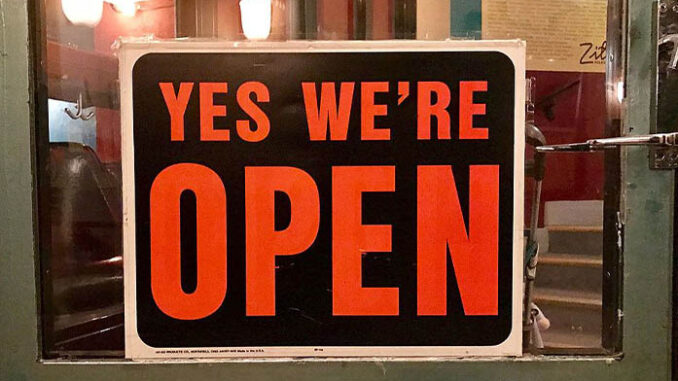
by Ethan Faverino | Nov 6, 2025 | Economy, News
By Ethan Faverino |
Arizona has emerged as one of the nation’s hotspots for shoplifting, ranking third highest in the United States with 587.83 incidents per 100,000 residents in 2024, according to a new report by Summit Defense.
This rate is 56% above the national average, highlighting a growing challenge for retailers and law enforcement across the state. The study, which analyzed FBI Crime Data Explorer figures for the full 2024 calendar year, underscores Arizona’s position in a troubling trend that has been dominating Western states.
“Shoplifting may seem tempting for many, but it’s just not worth the risk, and when people adopt the mindset of seeing shoplifting as a more insignificant crime, then more people often commit it, and the effect that this can have on businesses is enormous,” said Rabin Nabizadeh of Summit Defense. “This study highlights where shoplifting is an epidemic and needs urgent attention from lawmakers, law enforcement, and local businesses in the state.”
Under Arizona Revised Statutes (ARS) 13-1805, shoplifting is defined as knowingly obtaining goods from a retail establishment with the intent to deprive the owner, including actions like removing items without payment, altering price tags, transferring goods between containers, or concealing merchandise.
Penalties in Arizona escalate based on the value of stolen goods and aggravating factors:
- Less than $1,000: Class 1 misdemeanor (unless a firearm, then Class 6 felony)
- $1,000- $1,999: Class 6 felony
- $2,000 or more: Class 5 felony
- Repeat offenders (two or more prior theft-related convictions in 5 years): Class 4 felony
- Organized retail theft (involving intent to resale or tools to remove merchandise): Class 4 felony
Nationally, New Mexico leads with 777.97 incidents per 100,000 residents—106% above average—followed by Oregon at 675.98 (79% above). Arizona’s third-place ranking puts it ahead of Delaware (581.84 per 100,000, 54% above) and New York (558.55 per 100,000, 48% above).
At the other end of the chart, Idaho reports the lowest rate of shoplifting at 176.90 incidents per 100,000, putting it 53% below the national average. Maine is ranked second with 211.70 per 100,000 (44% below), followed by Rhode Island at 216.25 per 100,000 (43% below), Hawaii at 217.22 per 100,000 (42%), and Alaska at 232.22 per 100,000 (38%).
The 30-39 age group dominates shoplifting demographics in 46 states, including Arizona, accounting for around 30% of all reports nationwide.
Ethan Faverino is a reporter for AZ Free News. You can send him news tips using this link.

by Ethan Faverino | Oct 28, 2025 | Economy, News
By Ethan Faverino |
According to the newly released 2025 Retail Returns Landscape, U.S. retailers project that nearly $850 billion in merchandise will be returned this year, equivalent to 15.8% of total sales.
The figure, while substantial, reflects a slight decline from last year’s 16.9% return rate and $890 billion in total returns.
“Returns are no longer the end point of a transaction,” said NRF Vice President of Industry and Consumer Insights Katherine Cullen. “They provide an opportunity for retailers to create a positive experience for customers and can translate to brand loyalty. Retailers are constantly evolving and working to meet customer expectations, and they recognize the importance the returns process plays.”
While overall return rates remain steady, online sales continue to drive higher volumes, with an estimated 19.3% of e-commerce purchases expected to be returned in 2025.
Generational shifts are amplifying these trends, particularly among Gen Z shoppers (age 18-30) who averaged 7.7 online returns over the past 12 months, more than any age group.
Consumer demands for seamless returns are intensifying as 82% of shoppers now cite free returns as a major factor in their purchasing decisions, up from 76% last year. Additionally, 76% of shoppers are more likely to choose the return method offering instant refunds or exchanges.
However, a negative returns experience carries significant consequences: 71% of consumers report they are less likely to shop with a retailer again following a poor encounter, rising from 67% in 2024. Four out of five consumers say they are likely to share their bad experience with friends and family, potentially magnifying reputational damage.
Retailers are navigating these expectations while contending with escalating operational costs and external pressures. Surveyed merchants identified increasing online sales and reducing return rates as their top priorities in 2026.
Key drivers for charging return fees include:
- Processing costs (40%)
- Higher carrier shipping expense (40%)
- Economic uncertainty tied to tariffs (33%)
Return fraud remains another persistent challenge, accounting for 9% of all returns. Among retailers tracking fraud, 71% reported an increase in overstated return quantities, 65% noted “empty box” or “box of rocks” incidents, and 64% saw rises in decoy returns involving counterfeit items. To combat return fraud, 85% of retailers have begun to use AI to detect or prevent fraud from happening.
Notably, 45% of consumers—particularly when dissatisfied— believe that “bending the truth” is acceptable during a return.
David Sobie, co-founder and CEO of Happy Returns, said, “Return policies and their overall process have transformed into a strategic touchpoint for retailers, influencing how younger consumers shop from the outset. To stay competitive amid rising return rates and behaviors like bracketing, retailers must modernize their reverse logistics to enhance customer satisfaction, reduce fraud, and safeguard their operations in today’s high-pressure retail landscape.”
Looking into the holiday season, retailers anticipate 17% of holiday sales will be returned, consistent with prior years. To manage this surge, 49% plan to lean on third-party logistics partners, 43% will hire seasonal staff, and 37% intend to extend return windows.
Ethan Faverino is a reporter for AZ Free News. You can send him news tips using this link.

by Ethan Faverino | Oct 22, 2025 | Economy, News
By Ethan Faverino |
The U.S. Treasury and the Joint Economic Committee released the Monthly Fiscal Update last week, highlighting a 2.8% reduction in the federal deficit for Fiscal Year 2025 (FY2025), totaling $1.776 trillion compared to $1.828 trillion in FY2024.
The decrease was driven by record-setting tariff collections, increased tax receipts, and modifications to the student loan program approved in the 2025 reconciliation act.
September 2025 concluded with a notable surplus of $197.950 billion, reflecting strong fiscal performance with net outlays of $345.713 billion and net receipts of $543.663 billion for the month.
In FY2025, total federal net outlays reached $7.010 trillion, a 3.91% increase from $6.746 trillion in FY2024. Net receipts rose to $5.235 trillion, up 6.42% from $4.919 trillion in the prior fiscal year.
Despite the robust revenue growth, 25.33% of FY2025 outlays were not covered by revenues, resulting in the federal government spending $1.34 for every dollar received. The Congressional Budget Office (CBO) projects continued growth in outlays and receipts, forecasting net outlays of $7.294 trillion in FY2026, $7.622 trillion in FY2027, and $8.019 trillion in FY2028, with deficits projected at $1.713 trillion, $1.687 trillion, $1.911 trillion, respectively, over the same period.
Outlays by Category
Social Security remained the largest federal expenditure in FY2025, totaling $1.581 trillion (22.5%), followed by Income Security and Veterans Benefits at $1.079 trillion (15.4%), Medicare at $996.72 billion (14.2%), and Net Interest at $970.66 billion (13.8%).
Defense spending accounted for $868.41 billion (12.4%), while Medicaid outlays were $668.14 billion (9.5%). Foreign Aid and other outlays represented smaller shares, at $32.21 billion (0.5%) and $814.75 billion (11.6%), respectively.
Receipts by Category
Individual Income Taxes were the largest revenue source in FY2025, contributing $2.656 trillion (50.7%), followed by Social Insurance and Retirement Taxes at $1.748 trillion (33.4%).
Corporation Income Taxes added $452.09 billion (8.6%), while Customs Duties, boosted by record setting tariff collections, reached $194.87 billion (3.7%). Other receipts totaled $183.31 billion (3.5%).
Despite the deficit reduction, net interest payments on the national debt hit a record high of nearly $971 billion in FY2025, a $100 billion increase from FY2024. The Committee for a Responsible Budget projects that by 2051, interest payments will become the largest federal expense, surpassing Social Security.
Ethan Faverino is a reporter for AZ Free News. You can send him news tips using this link.

by Jonathan Eberle | Oct 20, 2025 | Economy, News
By Jonathan Eberle |
A new national analysis reveals that Arizona’s job market is holding steady, ranking 12th in the nation for job openings with a rate that mirrors the U.S. average.
According to a new report from Podium AI, which analyzed the latest data from the U.S. Bureau of Labor Statistics, Arizona’s job opening rate sits at 4.4%, matching the national average. That equates to roughly 149,000 available positions across the state—placing Arizona in a balanced middle ground between neighboring New Mexico (5.1%) and Utah (4.2%).
West Virginia tops the national rankings with the highest job opening rate in the country—6%, which is 36% above the national average. Despite its smaller population, the state reports around 46,000 open positions, a sign of a particularly tight labor market. Meanwhile, Washington State ranks lowest with a 3.7% job opening rate, 16% below the national average, though it still reports 142,000 job openings in total.
Arizona’s mid-tier ranking suggests a stable labor environment, neither overheated nor stagnant. Economists often view such alignment with national averages as a sign of balance between worker demand and supply.
The data may also reflect Arizona’s ongoing economic diversification. With growth in industries like manufacturing, logistics, and healthcare, employers are competing to fill specialized roles while maintaining steady hiring across service sectors. Nationally, the report identifies roughly 7.4 million job openings, translating to a 4.4% rate. But that average conceals deep regional differences.
Eric Rea, CEO and founder of Podium AI, said the results underscore the complexity of comparing job markets across states. “What really stands out is the contrast between smaller states like West Virginia and Maine, which are posting the highest rates, and much larger economies like California and Texas, which sit near the bottom,” Rea said.
“It’s not that California and Texas don’t have jobs—they have hundreds of thousands—but because their workforces are so large, those openings represent a much smaller share overall.”
Rea added that high job opening rates can reflect both strong demand for workers and challenges for employers struggling to find qualified staff.
“States like West Virginia and Maine may be experiencing tight labor markets where businesses are competing harder to attract workers,” he said. “That can create opportunities for job seekers, but it also puts pressure on employers to raise pay and improve benefits.”
For Arizona job seekers, the state’s alignment with the national average means steady opportunities across sectors but not the intense competition—or leverage—seen in smaller, high-demand states. With roughly 149,000 openings on the books, Arizona’s workforce remains in a healthy equilibrium—a sign of resilience in a national economy still recalibrating after pandemic-era labor shifts.
Jonathan Eberle is a reporter for AZ Free News. You can send him news tips using this link.

by Jonathan Eberle | Oct 19, 2025 | Economy, News
By Jonathan Eberle |
A new study shows that Arizonans are among the hardest-working Americans, with the state ranking third in the nation for longest average working hours.
The research, conducted by global executive search firm Keller, analyzed Bureau of Labor Statistics data from 2022 through 2024 to determine where U.S. workers are putting in the most time on the job. Across that three-year period, Arizona’s workforce averaged 116.43 annual hours worked, placing it just behind two other top-ranking states.
Breaking it down year by year, Arizonans logged 113.39 hours in 2022, 116.87 hours in 2023, and 119.01 hours in 2024, showing a steady upward trend in the state’s overall workload. A spokesperson for Keller noted that Arizona’s rapid population growth and expanding industries are key drivers behind the long hours.
“Arizona’s booming construction and healthcare industries, along with rapid population growth, have created sustained demand for longer workweeks,” the spokesperson said. “The Grand Canyon State’s workforce is balancing expansion in both service and industrial sectors.”
The findings underscore Arizona’s continued economic momentum, as the state has seen significant growth in sectors such as healthcare, logistics, and advanced manufacturing. Keller’s study highlights how workforce trends vary widely across the U.S., with some states showing shorter workweeks even as national labor participation remains steady.
The firm, which specializes in global recruitment and executive placement, said the results reflect broader economic and demographic shifts shaping local job markets.
Jonathan Eberle is a reporter for AZ Free News. You can send him news tips using this link.

by Ethan Faverino | Oct 16, 2025 | Economy, News
By Ethan Faverino |
The National Federation of Independent Business (NFIB) Small Business Optimism Index dropped 2 points in September to a score of 98.8, marking the first decline in three months.
Despite remaining above the 52-year average of 98, the dip reflects growing concerns among small business owners grappling with inflationary pressures, supply chain disruptions, and persistent labor shortages. The Uncertainty Index climbed 7 points to 100, making it the fourth-highest reading in over 51 years.
NFIB Chief Economist Bill Dunkelberg said, “Optimism among small business owners decreased in September. While most owners evaluate their own business as currently healthy, they are having to manage rising inflationary pressures, slower sales expectations, and ongoing labor market challenges. Although uncertainty is high, small business owners remain resilient as they seek to better understand how policy changes will impact their operations.”
In Arizona, small business owners echoed with national concerns: “Unfortunately, Arizona small business owners are facing the same sort of challenges we see in the national survey,” NFIB State Director Chad Heinrich said. “The ongoing labor shortage and inflationary pressures are giving small business owners pause in this economy. They’re focused on meeting their customers’ needs and retaining their workforce.”
Key findings from the September survey include:
- Inflation and Supply Chains: Inflation emerged as a significant issue, with 14% of owners citing it as their top business problem, up 3 points from August. A net 24% raised selling prices, up 3 points, and a net 31% plan to increase prices in the next three months, up 5 points. Supply chain disruptions impacted 64% of owners, a 10-point jump from August.
- Labor Market Struggles: 32% of owners reported unfilled job openings, unchanged from August. Of the 58% that are hiring or trying to hire, 88% faced a shortage of qualified applicants. A net 16% plan to create jobs in the next three months (up 1 point) is the highest since January 2025. Labor quality is tied with taxes as the top concern, cited by 18% of owners.
- Inventory and Sales: A net negative 7% viewed current inventory as “too low,” down 7 points—the largest monthly decline in the survey’s history. A net negative 7% reported higher nominal sales over the past three months, up 2 points, but a net 8% expect higher real sales volumes (down 4 points).
- Earnings and Investments: Actual earnings improved, with a net negative 16% reporting profit trends, up 3 points, and the highest since December 2021. Among those with lower profits, 33% cited weaker sales and 17% pointed toward material costs. Capital outlays remained steady, with 56% of owners reporting expenditures, primarily on equipment and vehicles.
- Financing Challenges: A net 7% reported tougher loan conditions, up 4 points and the highest this year. The average rate on short-maturity loans rose 8.8%. Regular borrowing increased, with 26% of owners reporting loans, up 3 points.
Despite these challenges, 57% of owners rated their business health as “good,” up 3 points, while 11% said “excellent,” down 3 points.
Taxes and labor quality tied as the top concerns, each cited by 18% of owners, while poor sales (10%) and government regulations (6%) remained notable issues.
Ethan Faverino is a reporter for AZ Free News. You can send him news tips using this link.






